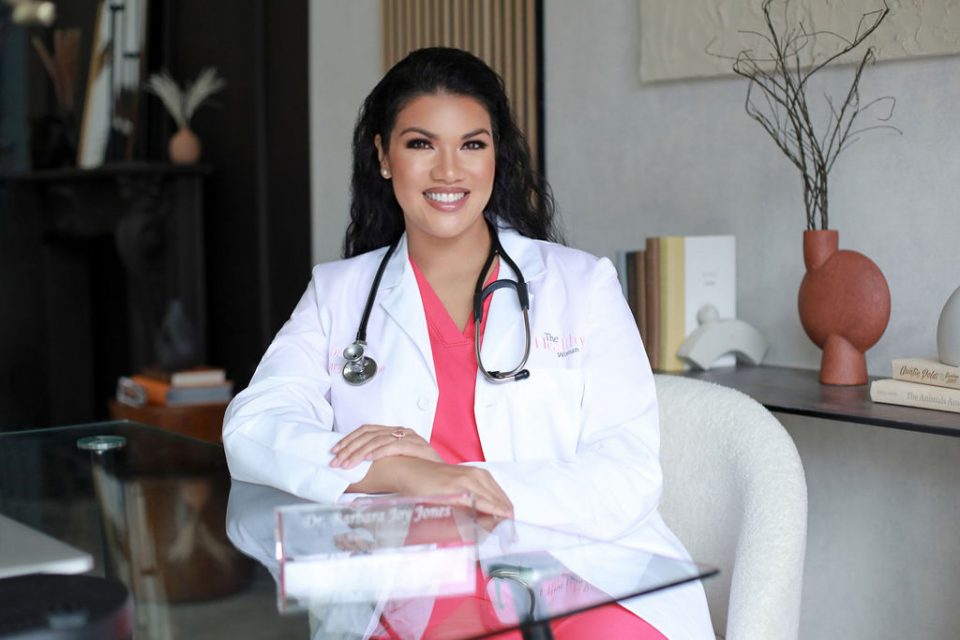
Dr. Barbara Joy Jones-Parks had dreams and aspirations of being a model and actress, so much so, that she walked away from a full basketball scholarship to pursue a career in Hollywood. “Unfortunately, I did not get any call backs at my auditions. So I went back to college and dedicated my life to becoming a physician,” she says.
Today, Jones-Parks is a board-certified family medicine physician proficient in osteopathic manipulative treatment and a sought after on-air medical expert. She is the chief medical officer of The Healthy Woman Primary Care in Lawrenceville, Georgia.
Why did you choose to focus on this area of health?
I chose this specialty because I didn’t want to be pigeonholed to one thing. I enjoy seeing different types of people with different complaints in each room. I use a comprehensive approach to holistically prevent disease but also manage chronic conditions like hypertension and diabetes. When something is out of my scope, I know which specialists to refer you to.
What is osteopathic manipulative treatment?
Osteopathic manipulative treatment is an additional skill used by osteopathic physicians. I describe it as a combination of massage, chiropractic and physical therapy all in one to help catalyze the body into healing. For example, colonic stimulation technique for constipation. Pressing on the belly with my hands, I massage the colon, pushing your stool further toward the anus. By the time I’m done with this technique, most patients have gas and ask to be excused to the restroom. That’s victory!
What are the benefits of OMT?
The benefit is that your osteopathic physician uses their hands to treat you, which is not invasive and does not require medication. OMT is for normal tissue acting badly. We use our hands to catalyze the body into healing. Some ailments I treat are tension headaches due to tight muscles, sinus issues due to allergies, ear ches, back strains, shoulders, constipation, menstrual cramps, plantar fasciitis, late-term pregnancy back and pelvic pain.
What are three challenges that health professionals face from managed care?
– Reimbursement from insurance companies continues to decline, resulting in physicians having to see more patients in the same amount of time. When the volume goes up, quality inherently goes down.
– Not being able to address all of the patient’s concerns in one visit. Because of time constraints, we can only discuss one issue per visit. This is hard for patients who take off of work for multiple appointments.
– The physician prescribes a treatment, but insurance companies may not want to pay. So in order to validate treatment, a “prior authorization” needs to be filled out. This is a time-consuming, exhausting process.
What are three things people should give up in order to live a healthier life?
Vegetable oil, processed sugar and chemical sweeteners like aspartame, sucralose and acesulfame potassium, being on the cellphone when sitting down at dinner, [and] forgoing connection with other human beings.
Websites and social media: www.instagram.com/themodeldoc www.the-healthywoman.com















